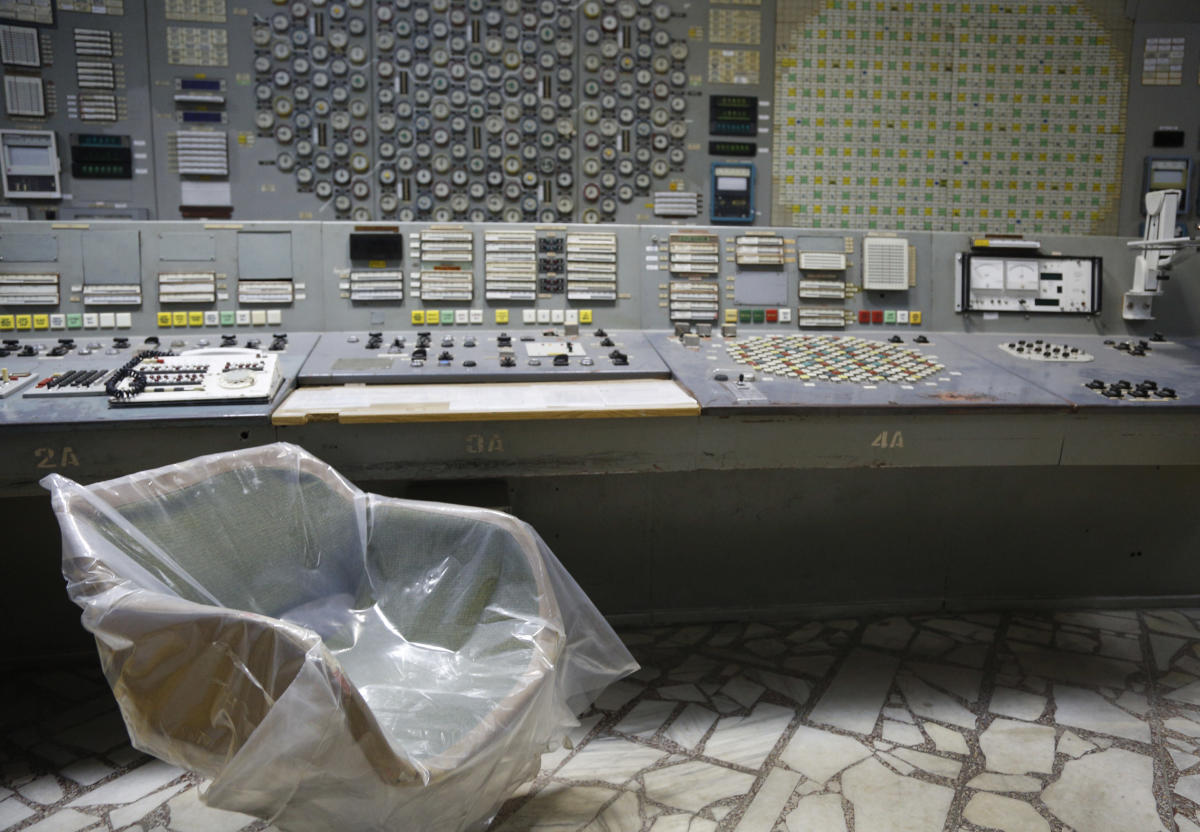
LONDON (AP) — Russia’s attack on a nuclear power plant in Ukraine has revived the fears of people across Europe who remember the 1986 Chernobyl disaster, which killed at least 30 people and spewed radioactive fallout over much of the Northern Hemisphere.
The U.N nuclear energy watchdog said no radiation was released after Russian forces shelled the Zaporizhzhia nuclear plant in the early hours of Friday.
But that did little to ease growing concerns in Western Europe. Even before the attack, Russia’s invasion of Ukraine had heightened concerns about the vulnerability of the nuclear reactors that provide about 50% of the country’s electricity. In addition to the danger of explosives damaging the reactors, plant managers and technicians must have unfettered access to the plants to ensure they operate safely, nuclear experts warned.
Pharmacies in some Eastern European and Scandinavian countries reported a surge in demand for iodine tablets, which can be used to protect children from radiation exposure. Politicians rushed to criticize Russia’s “reckless” actions, and Ukrainian authorities renewed calls for a no-fly zone to ensure Europe doesn’t face another nuclear disaster.
“I didn’t really sleep last night,’’ said Paul Dorfman, who led the European Environment Agency’s response to Chernobyl and was glued to the news from Ukraine on his phone. “The fact is that when things go really wrong with nuclear, you can begin to write off a lot of people’s lives.’’
That’s what happened on April 26, 1986, when a sudden surge of power during a reactor systems test destroyed Unit 4 at the Chernobyl power plant in northern Ukraine, which was then part of the Soviet Union.
The accident and fire that followed released massive amounts of radioactive material, forcing the evacuation of nearby communities and contaminating 150,000 square kilometers (60,000 square miles) of land in Belarus, Russia and Ukraine.
The initial explosion killed two plant workers, and 28 others died within the next three months. By 2005, more than 6,000 thyroid cancers were reported among children and adolescents in the affected area, many of which were most likely caused by radiation, according to a report from the United Nations Scientific Committee on the Effects of Radiation.
“Radioactive fallout scattered over much of the Northern Hemisphere via wind and storm patterns, but the amounts dispersed were in many instances insignificant,” the International Atomic Energy Agency said.
Twenty-five years later, an earthquake and tsunami triggered a meltdown at the Fukushima nuclear power plant in Japan, forcing the evacuation of more than 100,000 people. The accident raised safety concerns that led Japan and many other countries to curtail the use of nuclear power stations.
Nuclear experts on Friday stressed that the Zaporizhzhia plant is much safer than Chernobyl because the reactor is housed inside a reinforced concrete containment building designed to prevent radioactive material from escaping in the event of an accident. Chernobyl didn’t have this kind of structure.
While a Chernobyl-type event is unlikely, the containment vessel isn’t designed to withstand explosive ordinance such as artillery shells, said Robin Grimes, a professor of materials science at Imperial College London.
“It is therefore staggering and reckless to the extreme that shells have been fired close to a nuclear plant, let alone targeting buildings within the plant,” Grimes said. “Even if they were not aiming for the nuclear plant, artillery is notoriously inaccurate in a time of war.”
British Prime Minister Boris Johnson on Friday called for an emergency meeting of the U.N. Security Council to discuss the attack. A host of other world leaders contacted Ukrainian President Volodymyr Zelenskyy to express shock.
Among them was Japanese Prime Minister Fumio Kishida who called the attack on Zaporizhzhia an “unforgivable reckless act.”
“As a country that has experienced the Fukushima Daiichi nuclear accident, I said Japan condemns the attack in the strongest terms,” Kishida told reporters.
Ukraine’s nuclear power industry began in the 1970s, when it was still part of the Soviet Union. It now has 15 reactors at four power plants around the country. Two more reactors are under construction and the four at Chernobyl have been shut down.
Together the reactors generate about half of the country’s electricity. That share is expected to grow until at least 2035, because Ukraine sees nuclear power as the most cost-effective source of low-carbon energy, according to the IAEA.
That bucks the trend in the European Union, where nuclear power generation dropped by 25% from 2006 to 2020.
With the war in Ukraine triggering memories of Chernobyl, some people are taking precautions.
In Denmark, Sweden and Finland sales of iodine tablets have increased sharply. Meanwhile, authorities in countries like Poland and Romania sought to head off a similar surge in demand by warning consumers that taking iodine pills without a doctor’s supervision may do more harm than good.
The tablets can be used to protect children from the effects of radiation exposure by minimizing the uptake of radioactive iodine that can damage the thyroid gland.
Rosie Fisher, 42, a climate scientist who lives in Oslo, Norway, said she was startled when her 5-year-old brought a consent form home from kindergarten asking whether the school could give him iodine tablets in the event of a nuclear accident.
“Normally communications from his teacher’s are on the subject of the number gloves that they have or the very thick winter dress or what kind of hats they’ll need and where they should put their shoes in the morning,’’ Fisher said.
While she acknowledged that the form was probably just an example of Norwegian authorities planning for every eventuality, it nevertheless caused some anxiety.
“I’m trying not to Google how far away you have to be from a nuclear blast to survive it,” she said. “I’m trying not to Google that.”
__
Associated Press writers Frank Jordans in Berlin; Jan M. Olsen in Copenhagen, Denmark; Stephen McGrath in Siret, Romania, and Yuri Kageyama in Tokyo contributed.




